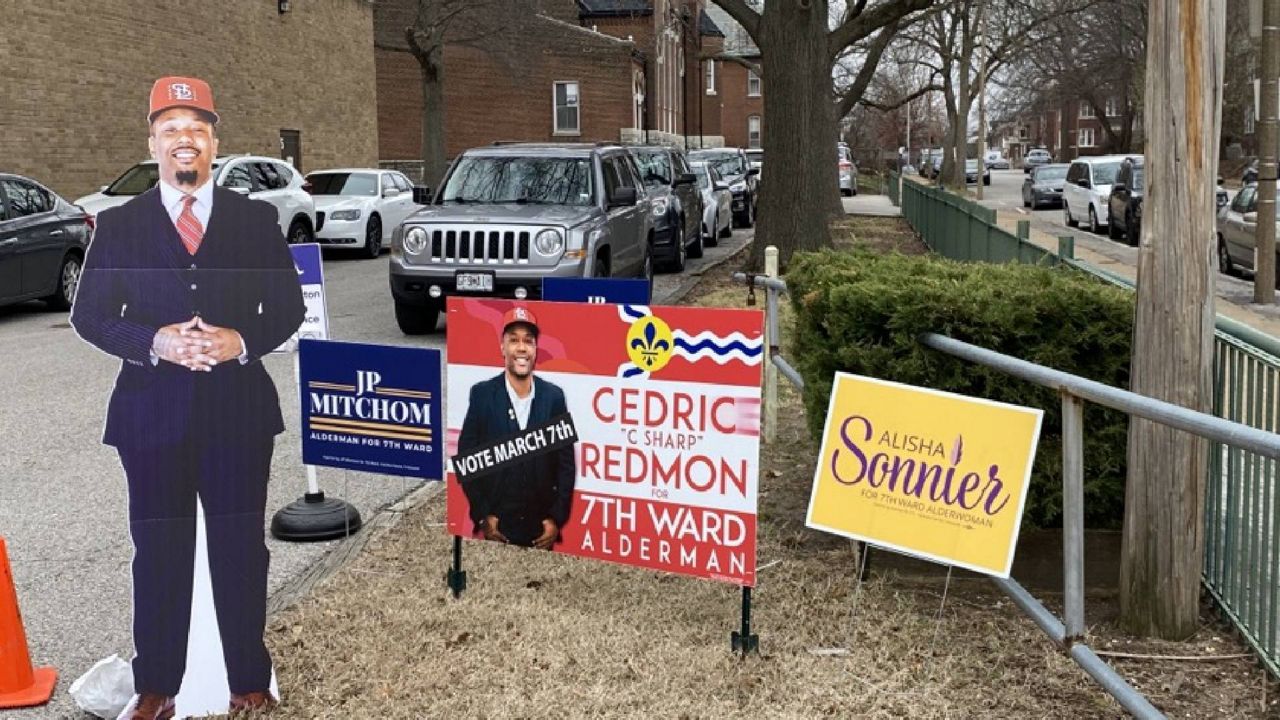ST. LOUIS–A bill making its way through the Missouri General Assembly could change an election day tradition for political candidates and campaign workers which election officials say has put Missouri out of step with the rest of the country.
At issue: how close should candidates, their signs, and supporters be to entrances at polling places.
In Missouri, the current buffer is 25 feet. According to the National Conference of State Legislatures, only one state, Pennsylvania, has a smaller buffer zone at 10 feet, while a handful of others have statutes that mandate a cone of a certain distance between voters and electioneers.
Among other provisions, Missouri House Bill 783 would extend the buffer to 100 feet, joining 22 other states, including Illinois. The zone would also apply to the no-excuse absentee voting preceding election day. There is no buffer of any kind in place for that period at present.
“The headline in the news the day after the August 2022 primary was fights between electioneers, complaints about electioneers, threats from people doing electioneering,” Eric Fey, Democratic Director of Elections for St. Louis County told the House Committee on Elections and Elections and Elected Officials last month. ”Electioneering is almost like a full contact sport in some parts of St. Louis County and St. Louis City, frankly.”
Fey told the committee that colleagues from out of state who come to observe elections here told him Missouri’s setup was “really intense…like a gauntlet of people,” and that local municipal elections are of a particular concern because of the more personal relationships between elected officials and constituents and the potential for more personal grudges. He offered an anecdote from the April 2021 election in a St. Louis municipality he did not name where a mayor and alderman candidates were violating the buffer zone but the police chief was afraid of enforcing the law because the winner of the election would end up, in effect, being his boss.
In St. Louis County, where voters can cast their ballot at any precinct, Fey said some voters have intentionally gone elsewhere to vote rather than encounter candidates or workers seeking signatures for petitions.
“It’s not a good look. It’s not a good thing for voters to be chased once they leave the polls. It would intimidate them enough to not want to come back to the polls and we certainly don’t want that to happen,” said the bill’s sponsor, State Rep. Peggy McGaugh R-Carrollton, who also chairs the committee.
“I’m there for the people. I’m not there to try and get somebody’s vote. If they don’t already have it in their mind who they’re gonna vote for, I’m not gonna change it. I’m just there to talk to them and to answer any questions that they might have before they go in and as they come out,” said State Rep. Jeff Coleman R-Grain Valley. “I’ll be so far away from the polling place, they’ll never even see me.”
Another committee member, State Rep. Donna Baringer, D-St. Louis said moving the barrier to 100 feet, especially in an urban setting, would mean she’s on someone’s neighboring porch, as opposed to a curb where she might be now.
Some committee members called for a carve out provision to allow signage.
The buffer zone would not apply to members of the news media, election challengers and poll watchers, just as they don’t currently.
The bill would also allow the use of provisional ballots to all elections, allowing a voter who does not have a Missouri or federal government photo ID at the time they’re voting to cast a ballot that will then be checked for a signature match before being counted.
Missouri Secretary of State Jay Ashcroft told Spectrum News Wednesday he supports moving the buffer zone but opposes the expansion of provisional ballots.
“What I can tell looking at the data we had a really good November election and I don’t see the need to weaken our election security when it seems like it worked flawlessly. I don’t see the basis to change that when it worked really well,” Ashcroft said, acknowledging that agreeing to allowing provisional ballots was a compromise made to get last year’s photo ID bill passed.
Ashcroft did not testify at the February 21 hearing.
With lawmakers set to begin their spring recess after Thursday’s session, McGaugh said she doesn’t expect any movement on the bill until after spring break.





